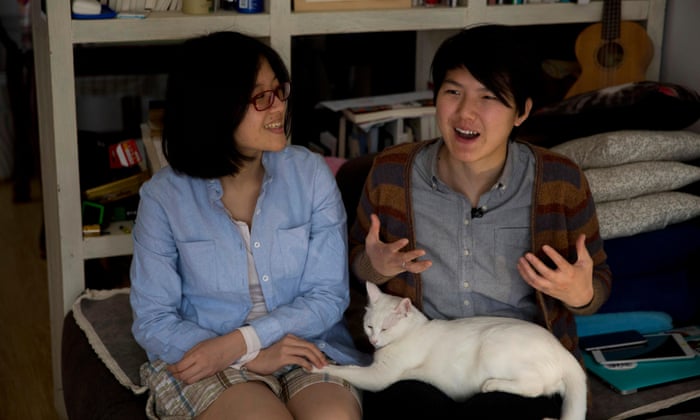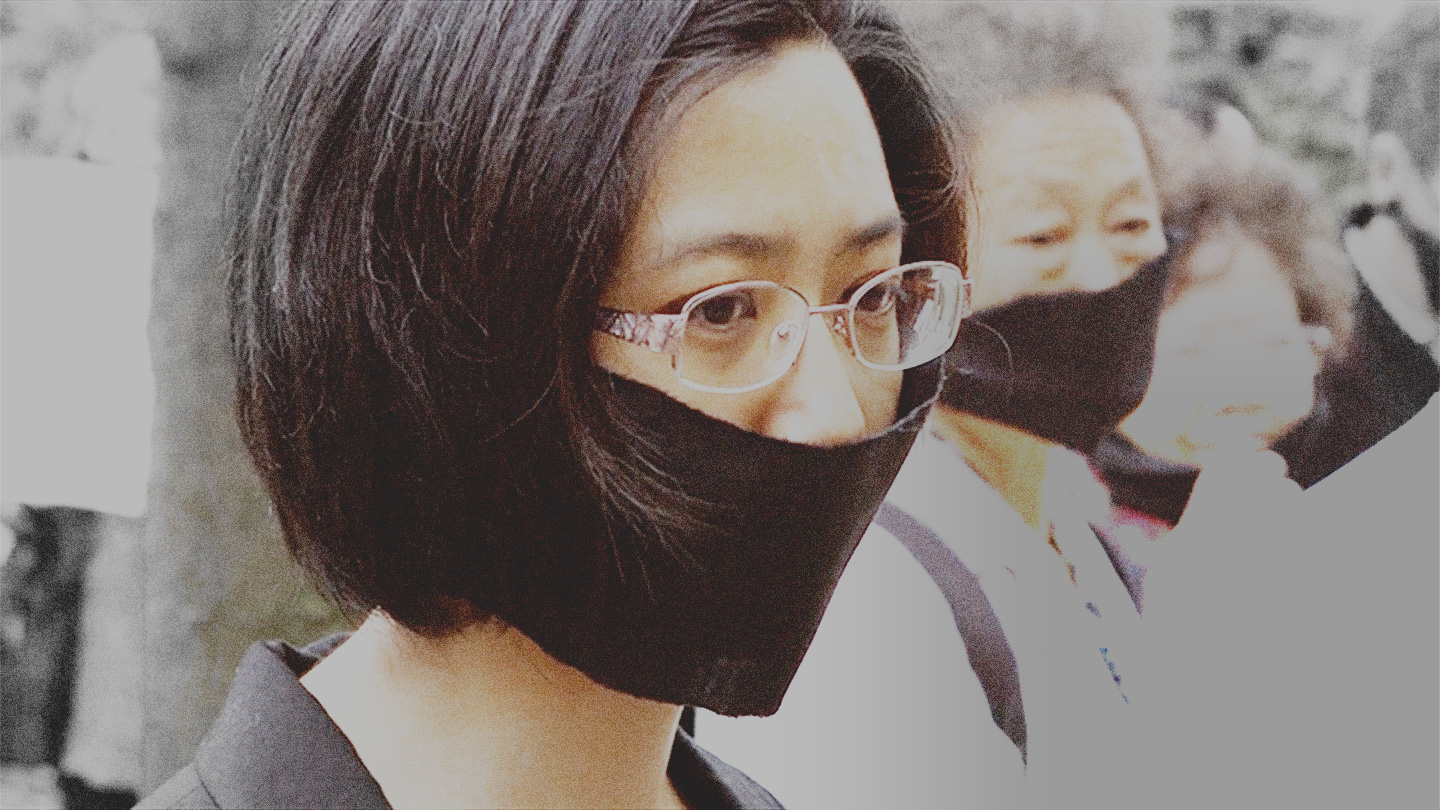The New York Times

Chinese police officers patrolled in front of the Canadian Embassy in Beijing this month after a Canadian was detained on suspicion of “engaging in activities that harm China’s national security.”
Three Canadian citizens being detained by China appear to have become pawns in a political impasse between the two countries and, by extension, the United States.
They should be released immediately.
China, already an aggressive rising power known to flout the rule of law and disregard human rights, now seems to be using hostage-taking to resolve economic and diplomatic disputes.human rights
Making matters worse, Trump has chosen to get involved, seemingly playing his own games to gain leverage in bitter trade talks with China.
Trump suggested that he might intervene to secure the release of a Chinese businesswoman arrested in Canada at the request of American authorities on Dec. 1 if it would lead to a favorable trade deal with Beijing.
That reinforced the suspicions of many in China who think that the United States is using the businesswoman, Meng Wanzhou, the chief financial officer of the giant Chinese technology company Huawei, as a hostage, too.
As acknowledged by the Chinese government on Thursday, Beijing is now holding a “female Canadian citizen,” identified as Sarah McIver, in addition to Michael Kovrig and Michael Spavor, who were detained earlier this month.
Although Mr. Kovrig is understood to have been seen once by a Canadian consular office, few details about the three Canadians, their conditions and the charges against them have been released.
China, already an aggressive rising power known to flout the rule of law and disregard human rights, now seems to be using hostage-taking to resolve economic and diplomatic disputes.human rights
Making matters worse, Trump has chosen to get involved, seemingly playing his own games to gain leverage in bitter trade talks with China.
Trump suggested that he might intervene to secure the release of a Chinese businesswoman arrested in Canada at the request of American authorities on Dec. 1 if it would lead to a favorable trade deal with Beijing.
That reinforced the suspicions of many in China who think that the United States is using the businesswoman, Meng Wanzhou, the chief financial officer of the giant Chinese technology company Huawei, as a hostage, too.
As acknowledged by the Chinese government on Thursday, Beijing is now holding a “female Canadian citizen,” identified as Sarah McIver, in addition to Michael Kovrig and Michael Spavor, who were detained earlier this month.
Although Mr. Kovrig is understood to have been seen once by a Canadian consular office, few details about the three Canadians, their conditions and the charges against them have been released.
It is not unusual for prisoners detained by China to be held in solitary confinement with the lights on 24 hours a day and be subject to prolonged interrogation, even torture.
China’s legal system is opaque and weighted overwhelmingly in favor of the government and against the ordinary people who get caught up in it.
The Foreign Ministry said Ms. McIver had been working illegally, and it’s not clear that her case is related to that of the two others. Mr. Kovrig, a former Canadian diplomat working for the International Crisis Group, a Washington nongovernmental research group, and Mr. Spavor, an entrepreneur specializing in business with North Korea, were reportedly being investigated over “activities that endanger China’s national security.”
Such moves are likely to chill the atmosphere in China for other diplomats and foreign businesspeople trying to work there.
But the detentions are less a function of the personal activities of the three Canadians than retaliation for Canada’s arrest of Meng.
China’s legal system is opaque and weighted overwhelmingly in favor of the government and against the ordinary people who get caught up in it.
The Foreign Ministry said Ms. McIver had been working illegally, and it’s not clear that her case is related to that of the two others. Mr. Kovrig, a former Canadian diplomat working for the International Crisis Group, a Washington nongovernmental research group, and Mr. Spavor, an entrepreneur specializing in business with North Korea, were reportedly being investigated over “activities that endanger China’s national security.”
Such moves are likely to chill the atmosphere in China for other diplomats and foreign businesspeople trying to work there.
But the detentions are less a function of the personal activities of the three Canadians than retaliation for Canada’s arrest of Meng.
She was picked up in Vancouver at the request of the United States while she was traveling to Mexico from Hong Kong.
At a bail hearing, Canadian prosecutors said Meng was suspected of helping banks violate United States sanctions against Iran.
At a bail hearing, Canadian prosecutors said Meng was suspected of helping banks violate United States sanctions against Iran.
She is now out on bail while awaiting extradition to the United States, a process that could take weeks or even months.
The arrests have drawn a sharp protest from the Chinese government, rattled financial markets and raised suspicions among Chinese officials that at least some Trump administration officials were trying to sabotage a trade deal.
The arrests have drawn a sharp protest from the Chinese government, rattled financial markets and raised suspicions among Chinese officials that at least some Trump administration officials were trying to sabotage a trade deal.
Huawei and Meng, the daughter of the company’s founder, are part of China’s corporate elite, and her detention has brought huge domestic political pressure on Xi Jinping.
Global Times, a newspaper aligned with the Chinese Communist Party, said that the impasse could be resolved quickly by Canada’s dropping all charges against Meng.
Global Times, a newspaper aligned with the Chinese Communist Party, said that the impasse could be resolved quickly by Canada’s dropping all charges against Meng.
“It is quite simple to end the crisis between China and Canada by giving back Meng’s complete freedom,” the newspaper wrote, most likely echoing the views of top officials.
There is so far no evidence that Meng’s arrest is anything more than a part of the Trump administration’s enforcement of the sanctions regime against Iran.
But Trump recently gave doubters an opening when he suggested he would intervene with the Justice Department in the Huawei case if it would help secure a trade deal with Beijing.
There is so far no evidence that Meng’s arrest is anything more than a part of the Trump administration’s enforcement of the sanctions regime against Iran.
But Trump recently gave doubters an opening when he suggested he would intervene with the Justice Department in the Huawei case if it would help secure a trade deal with Beijing.
The implication was that he might trade her for the two Canadians held at the time he made that statement.
“If I think it’s good for the country, if I think it’s good for what will be certainly the largest trade deal ever made — which is a very important thing — what’s good for national security — I would certainly intervene if I thought it was necessary,” Trump told Reuters in an interview.
Such interference in a judicial process would undermine the rule of law and encourage countries to detain each other’s citizens as a weapon of economic and political warfare.
“If I think it’s good for the country, if I think it’s good for what will be certainly the largest trade deal ever made — which is a very important thing — what’s good for national security — I would certainly intervene if I thought it was necessary,” Trump told Reuters in an interview.
Such interference in a judicial process would undermine the rule of law and encourage countries to detain each other’s citizens as a weapon of economic and political warfare.





